QuestionHi there,
We're a couple dog sitting a young border collie (2 years)
in his own home. We have experience with dogs/pets and have
tackled these challenges with our own pets but need some
advice on how to approach the issue's as pet minders.
His owners are away on a trip and he began showing signs of
separation anxiety from them our second day in. We're here
for 2 weeks and would like some tips on how to curb his
naughty behaviour and make this experience more pleasant for
us all.
He began urinating in the house (against walls) for no
particular reason. We've looked for his tells about needing
to go outside and it seems his behaviour is intentional. He
was given a 2 hour walk with vigorous exercise and
attention, yet this started after our walk. We give him
plenty of attention and pets, have not left him alone and he
remains outside when no humans are home (so no problem
there). Upon going to bed, he whined and yelped for a while
before being told a firm "no" after which he quieted down.
We discovered he poohed on the floor overnight even though
he was given 2 opportunities to use the yard before bedtime.
After being offered the chance to use the yard in the
morning, he declined then once again urinated in the house
and attempted to defecate on the carpet again (he was caught
in the act and placed outdoors). Aside from the obvious step
of putting him outside for toilet usage (on a lead if
needed, until we achieve the desired result) what can we do?
Our plan is to mimic his normal routine as much as possible
but any help you can lend would be greatly appreciated.
Thanks for your time,
Connie
Answer
Hi Connie,
Definitely try to stick to his normal routine as much as possible. Dogs are BIG on routine! Be sure to keep to his regular feeding times.
Treating separation anxiety often takes weeks or months, it may not be something you may be able to get control of in a two week period. Your best best defence is a good offence. Don't give the dog the run of the house if you think he's going to have an accident. If the dog isn't crate trained, contain him to one room with a child gate or two, or use an indoor dog pen. The containment area doesn't need to be very large, in fact the smaller the area, the easier it will be to keep clean. If possible, lay a thick layer of newspaper down over the entire containment area.
Too much affection can make separation anxiety worse. The dog sees it as a reward for it's behavior. Make sure you ignore all his attempts to get your attention when he's experiencing separation anxiety. The time for attention is when the dog is calm.
Clean up the accidents with an enzymatic pet odor cleaner, such as Nature's Miracle or Simple Solution, so he won't feel the need to re-mark the areas where he's already soiled.
Give the dog more frequent chances to go outside on walks. Exercise is the best way to relieve stress for a dog. Plus, the more he goes outside, the less of a chance he'll "go" in the house. Walks mean just that. Letting the dog outside by himself is not the form of exercise this dog needs at the moment. If you take him outside, and he doesn't do all that you think he needs to, put him right in his containment area, and take him outside for another try in about 20 minutes.
There is an odorless spray (the dog can smell it, you can't), called a Dog Appeasing Pheromone (DAP) which can help calm the dog, while he adjusts to his owner's absence. One brand to look for is called Comfort Zone Dog Appeasing Pheromone, but there are others. You can find DAP at larger pet stores. DAP also is available embedded in a collar (like a flea collar) and as an electric plug-in defuser, if the dog needs more than a single spray (you spray the environment where the dog is, not the dog!)
I hope I've been a help.
Best of luck,
Patti

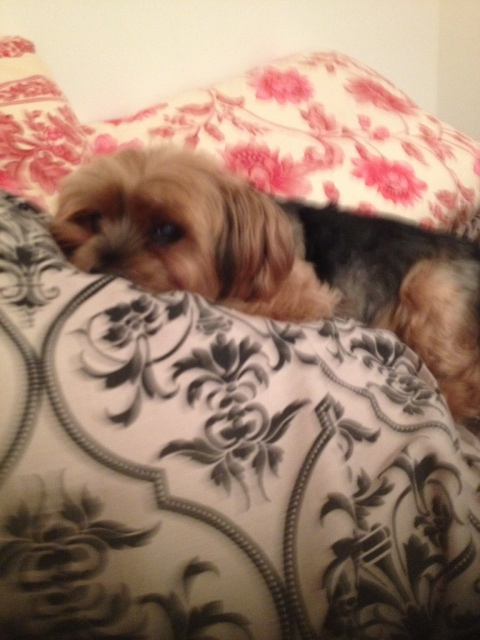 Cant afford medical care for my yorkie
Question
Mr. Bojangles BoBo
Hi, I adopted
Cant afford medical care for my yorkie
Question
Mr. Bojangles BoBo
Hi, I adopted
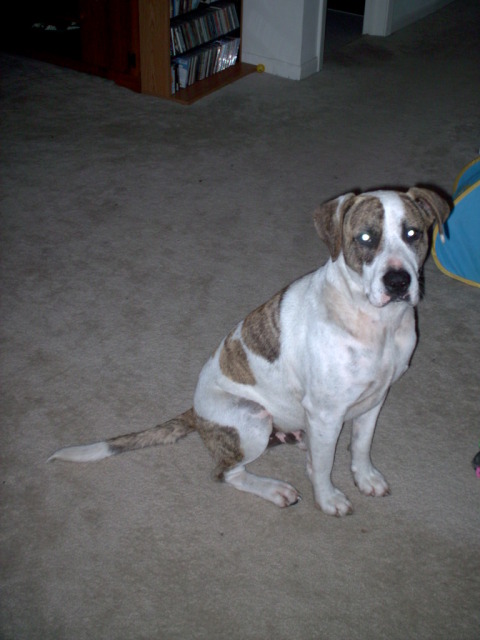 dog jumping fence
Question
dog
I have a 3 year old Staffordshire/Lab that
dog jumping fence
Question
dog
I have a 3 year old Staffordshire/Lab that
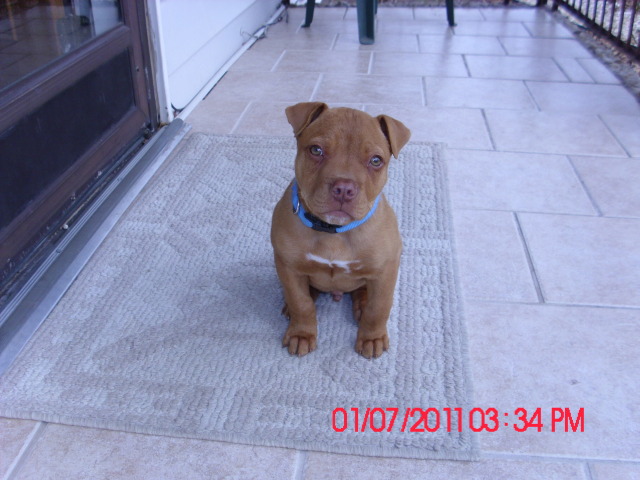 puppy medical concerns
Question
Rusty
my 11 week old red nose pit bull at time
puppy medical concerns
Question
Rusty
my 11 week old red nose pit bull at time
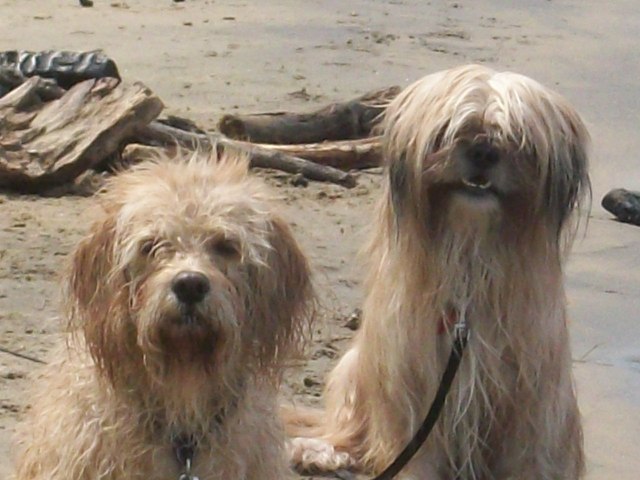 re: dog breed
Question
Dog pic question about
Hi Patti,
I took in a
re: dog breed
Question
Dog pic question about
Hi Patti,
I took in a
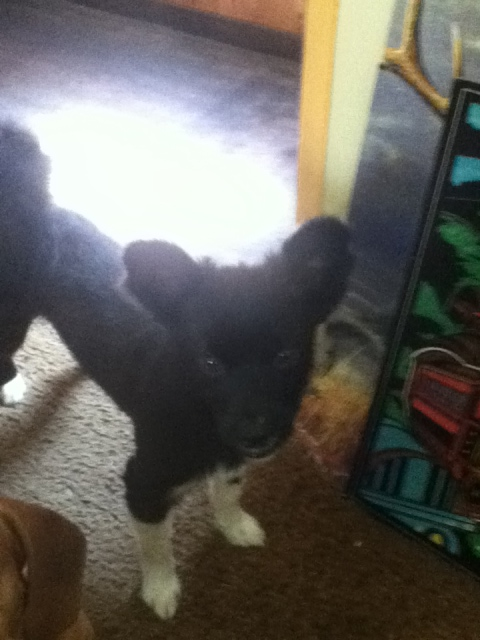 ideas of what breed dog this is?
Question
dog dog
i was wondering if anyone
ideas of what breed dog this is?
Question
dog dog
i was wondering if anyone